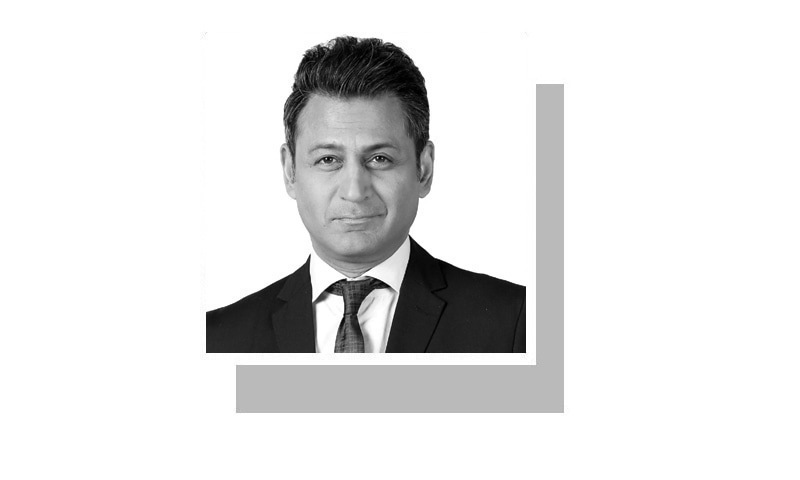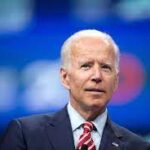FLAMES from the Afghanistan violence have begun to inch closer to our borders. In one recent incident, a number of troops from the Afghan National Army abandoned their post near the Pakistan border when the Taliban attacked. These ANA soldiers, in a bid to save their lives, crossed over into Pakistani territory where they were duly apprehended. However, they were later handed back to their authorities. This episode is just one of many that is indicative of the spillover of the conflict that may be about to hit Pakistan. Are we ready?
The state should be asking this question of itself. The last few weeks have suddenly seen an uptick in activity pertaining to this issue and there is growing concern in power circles that we may be about to enter into a very dangerous, unstable and unpredictable situation. In the maiden meeting of the Senate Foreign Relations Committee on Friday, chaired by PPP’s Sherry Rehman, National Security Adviser Dr Moeed Yusuf described Pakistan’s broad policy framework on Afghanistan in clear terms: first, efforts being made to facilitate a power-sharing arrangement between the Afghan Taliban and the Kabul government; and second, to take steps that minimise the spillover of instability — and the influx of refugees — from Afghanistan into Pakistan. The first one is not looking too promising. “We don’t control what is happening inside Afghanistan,” he said, adding “the ground situation is overtaking everything else.”
High-level sources have confirmed that in their most recent meetings with Pakistani officials, the Taliban leadership have shown some flexibility in terms of a dialogue but on one thing they are refusing to budge. They have reiterated and re-emphasised, according to these sources, that they will convert Afghanistan into an Islamic emirate and not continue with the democratic structure — whatever it is worth — that is in place now.
Pakistan’s political leadership has so far not provided any definitive answers to the Afghan crisis.
It is the second aspect — impact on Pakistan — that has now become the focus of the government’s efforts. The marathon meeting of the parliamentary committee of national security — the one briefed by army chief Gen Qamar Javed Bajwa and DG ISI Lt Gen Faiz Hameed — spent eight hours on discussing Afghanistan, but many people who participated in that meeting agreed that no solid recommendations emerged from it. The meeting of the Senate Foreign Relations Committee on Friday saw Foreign Minister Shah Mahmood Qureshi and NSA Dr Yusuf share details of the various policy initiatives on Afghanistan but yet again there was nothing that the committee members added to the existing discourse, and the dilemmas that surround it.
On the issue of refugee’s various government officials are saying there is a broad consensus that Pakistan should not allow them to meld into the population as was done in the 1980s. However, the specifics are still being worked out. The following proposals are on the table: (1) Convince the international humanitarian agencies to make camps for the displaced persons on the border with Pakistan but on the Afghan side (2) By keeping them on the Afghan side, let the international organizations give them the status of Internally Displaced Persons (IDPs) and not refugee status (3) Allow them inside Pakistan but keep them confined to designated camps (4) Block them from coming into Pakistan regardless of the situation (border fencing, patrolling).
The more realistic assessment is that once the refugees start to converge in the tens of thousands, it would be extremely difficult for Pakistan to block them. The ‘Iranian model’ of keeping them in camps is now a favoured option but even that is not easily accomplished.
There is another aspect. Dr Moeed Yusuf warned on Friday that it would be impossible to figure out who are genuine refugees and who may be TTP or other terrorists coming into Pakistani territory along with them. This poses a grave danger to Pakistan as an influx of these terrorists can once again revive violence that was eradicated with such an effort a few years ago.
In the meeting of the parliamentary committee on national security, the military leadership had framed three key policy questions on the Afghanistan situation for the political leadership to consider. (i) What should be our policy regarding the influx of Afghan refugees? (ii) Should we recognise the Taliban government when they capture Kabul or follow the international community’s decision? (iii) Should we allow US drones and aircrafts to use our airspace to launch attacks on Afghan territory?
The political leadership has so far not provided any definitive answers. One reason perhaps is that the political parties have not internally debated these questions, and there has been no such debate in parliament. Events are gathering pace and before we know it the answers to these three questions may be forced on to Pakistan. The National Assembly is in session but on Friday it debated matters pertaining to education and exams. The Senate is convening next week. There are no indications yet that the Upper House will attempt to debate these key policy issues on Afghanistan.
To complicate matters further, the relationship between Pakistan and the United States has become testy. Although Secretary of State Antony Blinken had a phone conversation with Foreign Minister Shah Mahmood Qureshi on Friday, officials in Islamabad acknowledge there is a strain between the two sides. The speech by Prime Minister Imran Khan on the floor of the National Assembly, in which he used strong words to describe US policy in the region, has ruffled many feathers on the other side. Officials have also said that President Joe Biden’s decision not to call PM Imran Khan at this crucial juncture has not been appreciated by Islamabad. There is a sense in relevant quarters here that now if Biden does make a call, there’s really nothing much to talk about on Afghanistan because events have taken a life of their own.
The situation is deeply complex and requires a serious national debate. Instead of bemoaning its irrelevance in strategic matters, the elected leadership from both sides of the aisle should grab the initiative and take centre stage.













